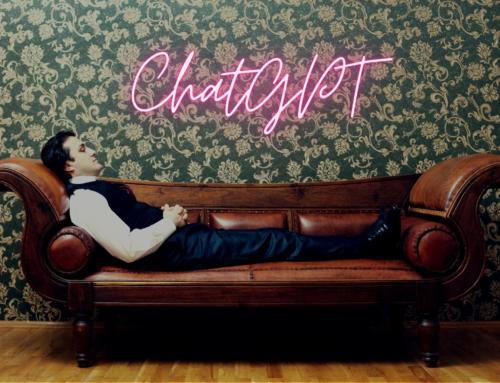“…It’s both physical and spiritual. The essence is to try and feel what the poor feel without food and try to be a better person by reflecting on our actions and thoughts. Try to be nice to each other, avoid bad/angry thoughts, etc.” — B. Drissi (personal friend)
As I write this article, we are 19 days into an annual ritual performed by over 1.25 Billion people on the planet — Ramadan.
Ramadan, the ninth month of the Muslim year, is when strict fasting is practiced from sunrise to sunset. It is observed by believers worldwide for a full month — from one visual sighting of the crescent moon to the next — that encompasses fasting, prayer, reflection, and community.
About a year ago, I visited Morocco for the first time as Soluna’s CEO. It was right in the middle of this holy month. I was told it would be a challenge to introduce our project to the Moroccan government given the stress most people are under during this period. I didn’t really understand what they meant.
In fact, I met one of our Moroccan team members, Larbi Loudiyi, for the first time during that trip. I subjected him to a series of interviews and meetings not really aware of what he was experiencing.
While fasting from dawn until sunset, Larbi (and all Moroccans) refrains from food, drink, smoking and other activities that may negate the reward of fasting. The goal is to purify themselves and increase their taqwa (or good deeds and God-Consciousness).
My one day of Ramadan Fasting
This year, out of solidarity, I decided to try the important ritual for one day. (I was joined by two other members of our US-based team, Dip Patel and Phillip Ng.) I was hoping to better understand what my colleagues and the broader Muslim community go through during Ramadan. And, of course, through this understanding develop empathy and a deeper relationship with Larbi.
Boy was I in for a challenge.
How I approached the Ramadan Fasting
Because of my location in New York, I am required to fast from 4:16 am (dawn) to 8:05 pm (sunset) eastern daylight time (EDT). I decided to work from home to ease myself through the process. No rides on the subway today.
Date- May 10, 2019 (New York Eastern Time)
3:45 am- Wake-up and have my pre-dawn meal called a Suhoor. In my case, I had some green juice, a banana, and lots of water.
5:00 am– A planned a conference call with Morocco colleagues to discuss my upcoming trip.
— Several hours of “deep work” activity and calls with teams.
12:18 pm– No water intake for nearly 8 hours is proving to be tough. I hear interesting voices in my head along with a persistent headache.
12:30 pm– Larbi calls to check-in and provides a pep talk. Other team members and friends send text messages, “are you alive?”
1:00 pm– Weekly team “WINS” call. We all provide detailed updates of our OKRs for the week. We each share an important demo as appropriate. Phillip, Dip and I are showing some serious wear after only a few hours. I would describe it as slow talking, slurring. :) I share a personal update.
— Several more hours of “deep work” activity and calls with the team. I start craving peanut butter sandwiches. I have some nut allergies, so this is rather strange.
3:00 pm– I take a walk outside for the first time. I also take calls from CEOs I advise as well as advisors to Soluna. It’s a warm day. I am feeling a little dizzy and incredibly thirsty. I pick up some Mother’s Day cards for the weekend.
4:30 pm– My family and I arrive at home.
“Dadda are you still fasting?” asks my daughter.
“Yes, I am my dear.”
“Why do you fast Dadda?” she continues.
“Well, it’s to feel what poor people feel sweetheart,” I explained.
…
6:00 pm– Finish up prep materials for my upcoming trip and jot some notes on my experience thus far. I take a brief nap and meditate. I start receiving supportive messages on WhatsApp from the Moroccan team. Phillip and Dip start messaging pictures of their plans to gorge on food when the time is up. I started preparing for a dinner with friends that my wife scheduled for the evening.
8:10 pm– After 16 hours of fasting, I record the final video chronicle of my first Ramadan Fast. Yay!
What did I learn?
I am often paralyzed by sudden waves of anxiety that come with being a CEO.
It’s true, I am not alone.
Many of us — when trying to keep our ships heading towards our vision — become drowned in a wave of images of failure.
During the Ramadan fast, I experienced some of these “voices”, but this time it was about personal cravings, personal anxieties, and a need to feed myself. After a while, I had a moment of clarity. It was sudden. These needy voices were not from my body, they were from my mind. I actually, for the first time, recognized the distinction!
It reminded me of something a yogi told my wife and me during a trip to India a few years ago.
He said, “The mind is weak. The body is strong.”
It never really occurred to me what that meant until now. Our bodies are incredibly resilient and able to endure untold stress. Many people around the world suffer unthinkable things that make our own personal struggles seem like a drop in the ocean.
When my mind finally quieted down, I realized my personal and professional anxieties were nothing to lose sleep over. They are just projections created by the mind.
And, there, at that moment, Empathy was born.


